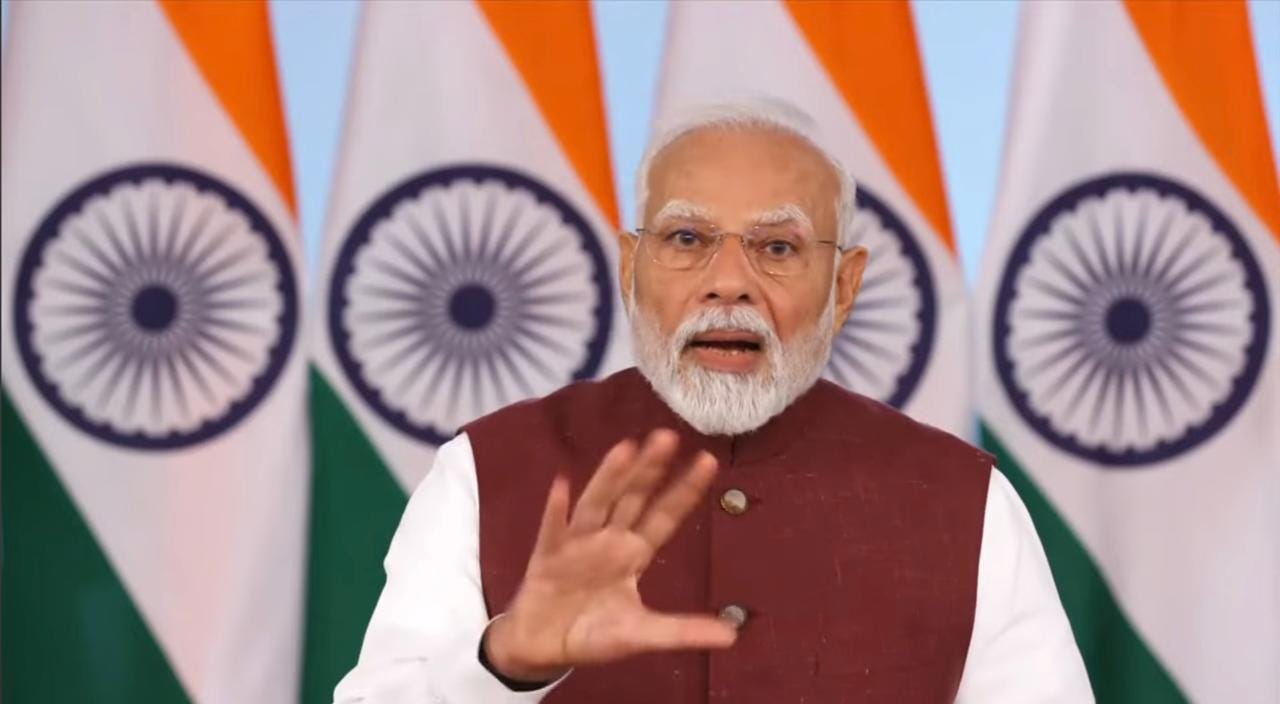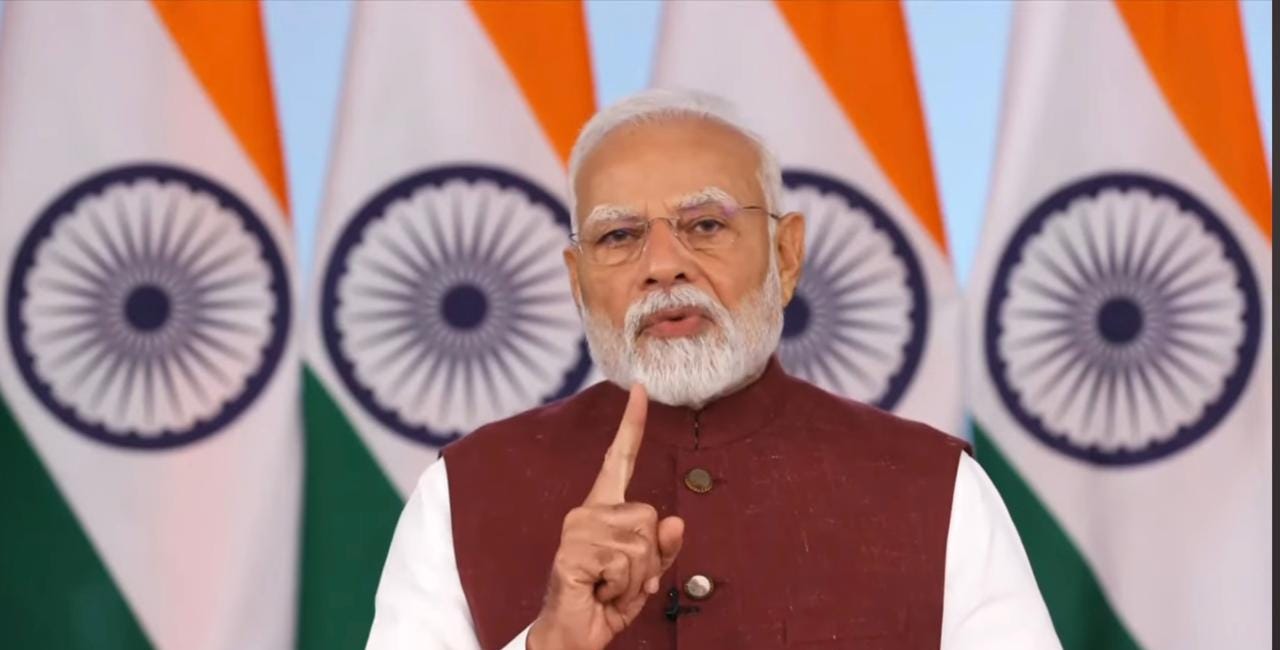PM Narendra Modi's Rousing Address to the Nation: Part 2_ Nation Awaits Five Crucial Answers
None of these questions are intended to second-guess the Prime Minister or the Armed Forces. On the contrary, they are a reflection of a nation’s deep-seated confidence in its leadership.
🇮🇳 PM Modi’s Address: Nation Awaits Five Crucial Answers
By Karan Bir Singh Sidhu
Retired IAS officer and former Special Chief Secretary. Writes on national security, governance, and geo-strategic affairs.
PM Modi’s Rousing Address to the Nation
Prime Minister Narendra Modi’s national address on May 12, 2025, following the launch of “Operation Sindoor” and the announcement of a ceasefire two days earlier, was a moment of forceful resolve, patriotic fervour, and strategic clarity. His words, brimming with emotional intensity and military confidence, resonated across the length and breadth of the country. It was a rousing call to unity and strength. The Prime Minister reaffirmed that India’s patience had reached its limits—and that terror and talks cannot coexist.
The 22-minute speech, delivered in Hindi, paid fitting tribute to the Armed Forces, saluted the sacrifice of India’s daughters, and laid down a new red line for future provocations. However, over 48 hours after the formal ceasefire with Pakistan—and even after this powerful address—five key questions remain unanswered. In the spirit of democratic accountability and informed national discourse, these questions are both timely and necessary.
These are not criticisms. They are earnest requests from 140 crore citizens, policy experts, and strategic observers—made in good faith and full national solidarity.
1. 🇺🇸 Was There Any Third-Party Mediation in the Ceasefire?
While PM Modi firmly stated that any dialogue with Pakistan will be limited to terrorism and Pakistan-Occupied Kashmir (PoK), the sequence of events leading to the ceasefire suggests possible external facilitation—particularly from the United States.
Statements by the U.S. President and Vice President, including remarks about “encouraging both sides” and potential talks in a neutral venue, have raised eyebrows.
Did Washington or any other foreign entity play a behind-the-scenes role in brokering the ceasefire?
India has always maintained a strict bilateral doctrine on Pakistan. If this has shifted—tactically or otherwise—the public deserves to know whether this was an exception or a recalibration.
2. 💧 What Is the Status of the Indus Waters Treaty?
India’s decision to place the Indus Waters Treaty in abeyance was widely welcomed, particularly in the water-scarce regions of Punjab, Jammu & Kashmir, and Ladakh. The move was seen as both lawful and strategic: India aimed to maximise use of its 3.6 MAF entitlement from the Indus, Jhelum, and Chenab rivers, apart from the additional water that would now become potentially available.
With the ceasefire now in place:
Will this abeyance continue?
Are there plans to re-engage with Pakistan or international intermediaries, such as the World Bank?
Or will India continue on its path of self-reliant hydrological development?
Even a broad official position would reassure the public that this bold initiative has not been diluted.
3A. 🕵️♂️ What Is the Status of the Pahalgam Terror Investigation?
Operation Sindoor was launched in the wake of the gruesome terrorist attack in Pahalgam that killed 26 people, nearly all Indian citizens. The Prime Minister rightly called it an unforgivable act that required retribution.
However, the investigative follow-up within Indian territory remains opaque:
Have the perpetrators been identified?
Is there conclusive evidence linking them to specific Pakistan-based terror groups?
Has anyone been arrested, neutralised, or interrogated?
With Jammu & Kashmir now a Union Territory, the Ministry of Home Affairs bears full administrative responsibility. Transparency in this matter is not just a bureaucratic obligation—it is a moral one.
3B. 🛡️ What Is Being Done to Prevent Future Attacks?
Jammu & Kashmir has been heavily promoted as a tourism hub, with places like Pahalgam witnessing a surge in domestic travel. But such attacks—like the one that triggered “Operation Sindoor”—undermine public confidence and threaten livelihoods, especially in a region being actively positioned as safe and investment-worthy.
What concrete steps have been taken to:
Strengthen surveillance and intelligence grids?
Secure soft civilian targets such as buses, public gatherings, and tourism corridors?
Coordinate between local police, paramilitary forces, and military command?
Prime Minister Modi has categorically asserted that any future instance of Pakistan-abetted terrorism on Indian soil will invite immediate and equivalent retribution. This strong deterrent posture has been widely welcomed.
Yet, public confidence can only grow deeper if the government also outlines its preventive security architecture—even in broad, non-classified terms. Citizens do not seek operational specifics, but they do deserve reassurance that protective systems are evolving as robustly as punitive ones. The idea is not just to punish the enemy—but to prevent the enemy from ever succeeding again.
4. ☠️ 100 Terrorists Killed—But Who Were They?
In his speech, PM Modi stated that over 100 dreaded terrorists had been eliminated during Operation Sindoor. He referred to deep-strike attacks on terrorist hubs in Bahawalpur and Muridke, historically associated with global jihadi networks.
The assertion was powerful. But it also begs details:
Were these mid-level operatives or high-value targets?
Were any involved in previous attacks like Pulwama, Pathankot, or Mumbai?
Did these strikes significantly degrade Pakistan’s ability to export terror?
Again, no one seeks operational secrets. But a factual overview would reinforce the legitimacy of India’s actions in the international arena.
🇮🇳 This Is Not Doubt—It Is Democratic Confidence
None of these questions are intended to second-guess the Prime Minister or the Armed Forces. On the contrary, they are a reflection of a nation’s deep-seated confidence in its leadership. In today’s India, citizens certainly listen with rapt attention and admiration to the speeches of strong and decisive leaders like Prime Minister Modi—but they also aspire to be informed participants in the national journey, which is the true hallmark of a mature democracy.
The Prime Minister’s address was a bold and stirring reaffirmation of India’s sovereign will. Yet, offering greater clarity on these key issues—whether through Parliament, official briefings, or public communication—would serve only to enhance the credibility of India’s actions and further fortify the resilience of our democratic ethos.
🇮🇳 In Any Case, A Turning Point in National Security Doctrine
In any case, “Operation Sindoor” marks a definitive doctrinal shift—a clear and resolute departure from passive strategic restraint to proactive and preemptive defence. Terrorists, their sponsors, and their enablers have not only been put on notice, but have also been served a bitter dose of decisive justice. If greater clarity is provided in the coming days, it will not merely respond to public curiosity—it will further strengthen the confidence of 140 crore Indians, deepen trust in our institutions, and amplify India’s global standing as a nation that protects its citizens with honour, precision, and unwavering resolve.
In that spirit, the Prime Minister, his ministerial colleagues, national security advisers, senior officials, and above all, the gallant men and women of India’s Army, Navy, Air Force, and Special Forces deserve the nation’s highest gratitude and admiration. Their courage, coordination, and clarity of purpose have once again reaffirmed that India will neither forget nor forgive those who dare strike at its soul.
Because in this New India—justice is not merely promised. It is delivered. And demonstrated.
PM Narendra Modi's Address to the Nation: Part 1_ Our Summary
🇮🇳 Saluting the Brave: Operation Sindoor Dedicated to India's Women




UN and US designated terrorists roam freely in Pakistan and US/UN do nothing. Clearly, Pakistan has backing of US/UN. Britishers created it keep India under check. Pak is a more radicalized and blinded with hatred version of North Korea. There is no way to put a permanent fix to this problem. Even if India exterminates 99% of their people, remaining 1% will still either become terrorists or support them. Anyone who reads their newspapers, say, The Dawn (which is supposed to be their best) will easily conclude that having this rogue state as our neighbour is our destiny.
I think suspending IWT is a brilliant decision to make the common people of Pakistan feel the heat, so far restricted to administration. This, couple with actions like Operation Sindoor will cripple their economy further, and will keep them begging for survival, which west will always oblige, else these guys will start selling their nukes.
Govt has make good decisions so far to part ways from them. They should further take it forward and close down the high commissions and keep no relationship whatever.
Pahalgam guys will be caught in due course. My view is that those guys would have reached UK or Canada by now with the help of Pak Army.